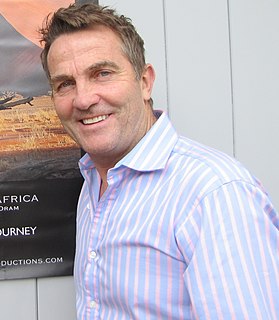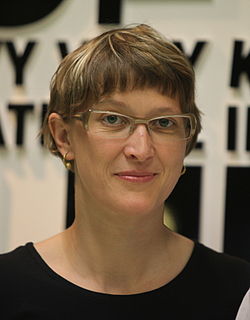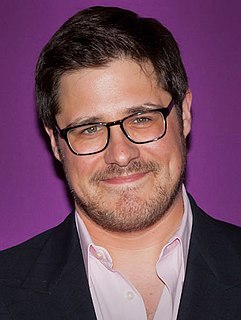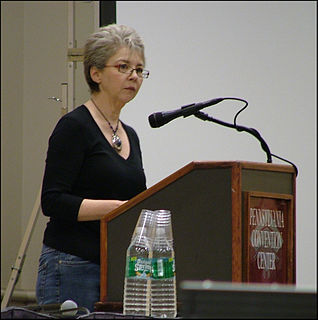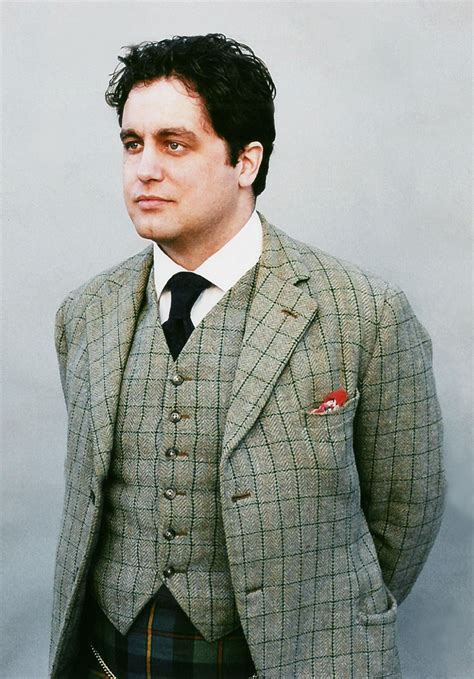A Quote by Paul Haggis
If you make a film and then two and a half, three years later, suddenly the country's changed and you look like you just happened to hit it. I actually like being contrarian. I would have preferred to come out three years ago when everyone was disagreeing with me. But hopefully it asks a lot of questions about our responsibility in sending young men and women to war, especially a war that's so complex, where there's no right answer, where they're forced with impossible decisions every day.
Quote Topics
About
Actually
Answer
Asks
Being
Changed
Come
Complex
Country
Day
Decisions
Every
Every Day
Everyone
Film
Forced
Half
Happened
Hit
Hopefully
Impossible
Just
Later
Like
Like You
Look
Lot
Make
Me
Men
Men And Women
Our
Out
Preferred
Questions
Responsibility
Right
Right Answer
Sending
Suddenly
Then
Three
Three Years
Two
War
Women
Would
Years
Years Ago
Young
Young Men
Related Quotes
Theatre is organic, film is not. Theatre you come every day and you work with a group of people and you're are all up for it and you all get to do the whole thing every night, be it two hours or three hours. In film you work in two or three minute bits and it's never in chronological order and then someone takes that away and makes it look like it all happened, or that you gave that performance.
I look old. To be honest, up until two or three years ago, my age put a lot of restrictions on me. I was told, 'You look like you're in your mid- to late-twenties, but you're actually too young.' There were a lot of restrictions like that when it came to casting. I even requested that they remove my age on my public profile.
I would caution my Republican friends that [Obama has] three years to go, and in that three years the American people are going to want to see some progress and not just claims that this guy is out of office and we're going to do everything to destroy him or that somehow he is a 'socialist' taking over the country. Have we so lost our faith in this country that we think one person, one man can be can suddenly change our entire system? That's kind of absurd.
War today is such a more visible thing. We see it on television, on CNN. In 1914, war was a concept. There was a naivety and stupidity that war would be a great lark. It's not that different from Gone With The Wind, where all the young men can't wait to go off to fight and then two hours later in the movie, we see how the reality of that has come home to them.
Everyone is born creative; everyone is given a box of crayons in kindergarten. Then when you hit puberty they take the crayons away and replace them with dry, uninspiring books on algebra, history, etc. Being suddenly hit years later with the 'creative bug' is just a wee voice telling you, 'I'd like my crayons back, please.
Two or three years ago, every game I want to score. And after I score a goal I have a spark and I'm so happy I want more. Now I'mkind of different. I'm not saying I lost my spark - I still have it - but I don't chase the goal as much as I used to. I'm playing for the team andI still know I can score, but it's different than two or three years back.Look at great teams like Detroit a couple of years ago; they winthe Stanley Cup and guys only score 25 goals, nobody has a really big season. You have to play defense, that's how you win.
Now take a look at the way the Drug War is conducted over the past 40 years. It goes back farther, but start from 40 years ago: There's very little spent on prevention and treatment. There's a lot on policing, a ton of stuff on border control and a lot on out-of-country operations. And the effect on the availability of drugs is almost undetectable; drug prices don't change on measures of availability. So there are two possibilities: Either those conducting the Drug War are lunatics, or they have another purpose.
You know, it only happens a handful of times in your career, where you walk out of an audition feeling like all the stars aligned, my preparation paid off, something magical happened in the room. I've gotten really lucky and I've gotten to work a lot, and I would say it's only happened, like, two or three times, where I've walked out and been like, This was the right thing and the right choice and they should just cast me.





